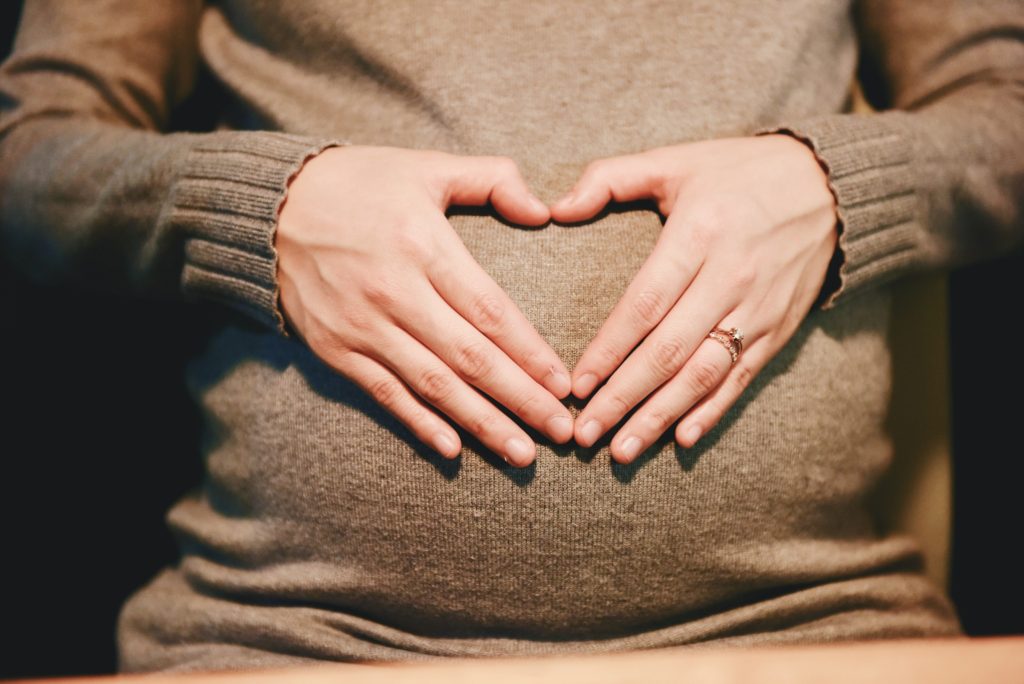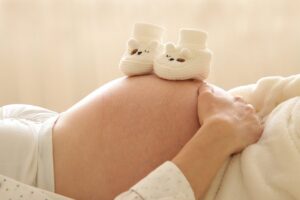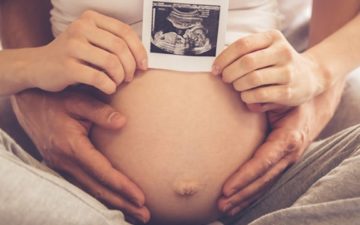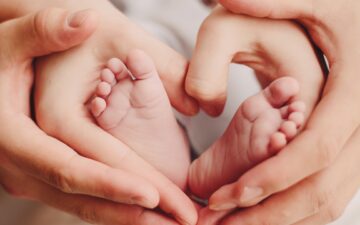Endometriosis And Pregnancy – Can you get pregnant with endometriosis?

Endometriosis is a medical condition characterized by the growth of tissue similar to the uterine lining (endometrium) outside the uterus. This tissue can also form scar tissue and adhesions, making it more challenging to conceive. Endometriosis can pose challenges for women trying to conceive, but it’s important to understand that pregnancy is indeed possible, even in cases of advanced endometriosis.
IVF Conceptions, we are dedicated to providing you with the information you need to navigate this journey toward motherhood, even when faced with endometriosis.
Unfortunately, one out of eight couples around the world are infertile because of one or the other reason. One such condition that leads to infertility in women is endometriosis.
However, the treatments are available for endometriosis which helps the couple to have a child of their own. In this article, we will cover how endometriosis and pregnancy are related and if you can get pregnant with endometriosis.
Get in touch for FREE SURROGACY CONSULTING:
Mobile: +91-8800481100 ( WhatsApp, Line, Viber)
Email: neelam@ivfconceptions.com
What is endometriosis?
Endometriosis is a painful condition that may affect fertility. The tissue that normally lines within a feminine uterus is the endometrium. An endometrial disorder in which tissue similar to the tissue that usually lines outside the uterus — the endometrium — grows outside the uterus. The most advanced form of endometriosis includes your ovaries, fallopian tubes, and pelvis-lined tissue. Endometrial tissue will rarely spread over pelvic organs.
How does endometriosis happen?
With endometriosis, the endometrial tissue with each menstrual cycle spreads breaks down, and bleeds. However, it is trapped because this tissue doesn’t have a way out of your body. Cysts known as endometriomas can develop when endometriosis involves the ovaries. The tissues around the tissue may be irritated, and eventually, scar tissue and adhesions may develop – abnormal tissue bands that can cause pelvic tissues and organ adhesion.
 Can you get pregnant with endometriosis?
Can you get pregnant with endometriosis?
Research indicates that one-third to one-half of women with endometriosis encounter difficulties conceiving naturally. The reasons for this include:
1. Ovarian Cysts
Endometriosis can extend to the ovaries and give rise to cysts, known as endometriomas. These cysts can hinder fertility by obstructing the release of eggs or their journey into the fallopian tubes.
2. Adhesions
The overgrowth of tissues caused by endometriosis can lead to adhesions—scars that form between tissues within the body. These adhesions can prevent eggs from traveling from the fallopian tubes to the uterus and inhibit sperm from reaching the egg.
3. Impact on Egg Quality
Studies have demonstrated that endometriosis can affect the quality of eggs within the ovary.
4. Pain During Intercourse
Pain during sexual intercourse is a common symptom of endometriosis, and it can decrease the chances of conception by affecting the frequency and comfort of intercourse.
5. Impact of Treatment
Many individuals with endometriosis manage their symptoms with hormonal birth control, which can unintentionally prevent pregnancy.
What are the symptoms of endometriosis?
Endometriosis is a condition in which you may have a symptom or you may not have a symptom. Some women experience mild symptoms while some experience moderate symptoms. The degree of pain cannot determine the stage of endometriosis. Some women who have mild endometriosis may experience heavy pain as well. So, it is important to be regular with your gynecological follow-ups.
Some of the symptoms of endometriosis are –
- Pain during periods
- Pain after sexual intercourse
- Lower abdominal pain before and during menstruation
- One or two weeks of menstrual cramps
- Infertility
- Discomfort during bowel movements
- Lower back pain can occur in your menstrual cycle at any time.
Stages of endometriosis
As mentioned earlier there are different stages of endometriosis. These are –
- Minimal- Small lesions or groups and shallow endometrial implants are present on your ovary during minimal endometriosis. In or around your pelvic cavity inflammation may also occur.
- Mild- Light lesions and shallow implants in an ovary and the pelvic lining are involved in mild endometriosis.
- Moderate – Moderate endometriosis requires deep ovary and pelvic implants. Further lesions may also occur.
- Severe – Deep implants on your pelvic lining and ovaries are the most severe stage of endometriosis. Injures in your fallopian tubes and bowels can also occur.
Additional Guides for Surrogate Mother:
Find a Surrogate Mother With or Without an Agency
In Which Country I Find Low-Cost Surrogate Mothers (in 2023)?
How can I Find a Surrogate Without Agency
What is the Age Limit for Surrogate Mothers
How Much Does Surrogacy Cost Using Family Member
How to Start the Gestational Surrogacy Process? A step-by-step guide for Beginners
How Much Does Surrogacy Cost? Everything You Need To Know (in 2023)

When to see your doctor if you have endometriosis and trying to conceive?
Trying to Conceive With Endometriosis
Pregnancy with endometriosis is possible. If you’ve been diagnosed with endometriosis and wish to conceive, it’s advisable to attempt natural conception for six months, given that natural fertility declines after this period, particularly for those over 35. However, some individuals may opt to consult a fertility specialist earlier, depending on individual circumstances.
Enhancing Your Chances
To enhance your chances of conception, consider these lifestyle factors:
- Maintain a healthy and diverse diet rich in fruits and vegetables.
- Take multivitamins or prenatal vitamins.
- Engage in regular physical activity.
- Manage stress through techniques like deep breathing.
- Seek support from a support group or community.
Some doctors may advise seeing a specialist in infertility before you even think about getting pregnant.
A blood examination, such as an anti-Mullerian hormone (AMH), can be done by an infertility specialist. This check reveals the amount of eggs you still have. Surgical endometriosis may reduce ovarian reserve.
Surgery to identify areas with endometrium is the only way to actually diagnose endometriosis. However such operations can lead to fertility scarring.
 Managing Endometriosis and Pregnancy
Managing Endometriosis and Pregnancy
While conception with endometriosis may pose challenges, it’s essential to recognize that most pregnancies in individuals with endometriosis are successful and uncomplicated. Nevertheless, it’s important to be aware of potential risks, including:
1. Miscarriage
Pregnancies with endometriosis have a 40% higher risk of miscarriage compared to those without the condition. This risk remains, even among individuals with milder forms of endometriosis.
2. Ectopic Pregnancy
Endometriosis more than doubles the risk of ectopic pregnancy, where a fertilized egg implants outside the uterus, typically in the fallopian tube.
3. Gestational Diabetes
Pregnancies with endometriosis have a 35% higher rate of gestational diabetes, which can lead to a bigger baby and a more complicated delivery.
4. Hypertension
Endometriosis increases the risk of gestational blood pressure disorders by 45%, including hypertension and preeclampsia.
5. Preterm Birth and Low Birth Weight
Rates of preterm birth and low birth weight are also elevated in pregnancies with endometriosis, increasing by 16% and 55%, respectively.
Read more:
How much time does it take to get pregnant?
Does acupuncture help in the treatment of infertility?
Getting pregnant with endometriosis
 Treatments of Endometriosis
Treatments of Endometriosis
There are many treatments for endometriosis. However, you should consult the fertility specialist before taking any medications.
The various treatments for endometriosis are as follows –
- Pain relief medication – It may be advised by your doctor to use an over-the-counter pain relief drug, such as ibuprofen or naproxen nonsteroidal anti-inflammatory medicine (NSAIDs), to help relieve painful menstrual cramps. If you are not attempting to get pregnant, your doctor may recommend hormone therapy in combination with pain relievers.
- Surgery – The procedure to remove endometriosis implants and maintain your uterus and ovaries will improve the chances of pregnancy when you have endometriosis and are trying to be pregnant. In a laparoscopic operation, your doctor inserts a small incision using a slender viewing device (laparoscope), inserting instruments to remove endometrial tissue via another small incision. Your doctor may urge you to take hormone medicine after an operation to help relieve your pain.
- Hormone contraceptives – Pills, patches, and vaginal rings control the hormones responsible for the growth every month of the endometrial tissue. When they use a hormonal contraceptive, they have a lighter and shorter menstrual flow. In some cases, the use of hormonal contraceptives – particularly continuous cycle regimens – may reduce or remove the pain.
- Progestin Therapy – A range of progestin therapies can stop the growth of menstrual signs and symptoms, including an intrauterine device with levonorgestrel, the contraceptive implant, contraceptive injection, and progestin pill.
- Gonadotrophin-releasing hormone – These medications prevent the development, lower estrogen, and prevent menstrual growth of ovarian stimulating hormones. It leads to the narrowing of the endometrial tissue. Menstrual cycles and the potential to return pregnant if you avoid taking the drug.
- Aromatase inhibitors – The inhibitors of aromatase are a class of drugs that reduce the body’s amount of estrogen. You may recommend progesterone or a combination of hormonally contraceptive aromatase inhibitors to treat endometriosis.
- Hysterectomy – A surgeon extracts the uterus and cervix during a complete hysterectomy. This also eliminates ovaries because these organs contain estrogen and the development of endometrial tissue is caused by estrogen. In addition, an implant lesion is removed by the surgeon. Hysterectomy for endometriosis is not usually seen as a therapy or cure. After a hysterectomy, you won’t be able to get pregnant.
 Lifestyle and endometriosis
Lifestyle and endometriosis
It is also necessary to live a lifestyle as healthy as possible while you suffer from endometriosis and seek to become pregnant. This will help you develop and flourish during a healthy pregnancy and reduce inflammation in your body.
Please follow the following lifestyle changes for endometriosis –
- Maintain a healthy weight
- Engage in moderate exercise every day
- Eat a healthy diet that is rich in fruits and vitamins
Some women suffering from endometriosis will get pregnant and will face some issues during the delivery or pregnancy time. Such women are more tend to experience –
- Preeclampsia
- Cesarean surgery
- Placenta related issues
- Preterm delivery
Fertility Treatment Options in Endometriosis:
Endometriosis and fertility are related. While fertility drugs alone are not typically recommended for women with endometriosis, options such as intrauterine insemination (IUI) and in vitro fertilization (IVF) can be considered, depending on your age, the stage of the disease, and individual factors.
Intrauterine Insemination (IUI)
IUI, combined with fertility drugs, is often a starting point for women with stage 1 or 2 endometriosis. It involves introducing sperm into the womb during ovulation.
In Vitro Fertilization (IVF)
If IUI is unsuccessful, IVF may be recommended. This process involves extracting eggs, fertilizing them outside the body, and then implanting them in the womb.
Surgery and Fertility Rates
Surgery for endometriosis primarily aims to alleviate pain symptoms but may improve the odds of pregnancy in some cases. However, it’s essential to note that endometriosis can recur after surgery, and repeated surgeries can lead to adhesions that complicate conception.
Conclusion
In summary, pregnancy is attainable for individuals with endometriosis, although it may require additional considerations and potential medical assistance.
While endometriosis can present fertility challenges, understanding the available options and risks is essential for those on the path to parenthood.
Therefore, endometriosis is a treatable condition, and achieving pregnancy is possible with this condition. One has to be careful like what is the stage of endometriosis and consult your fertility specialist accordingly. At IVF Conceptions, we are committed to providing you with the guidance and support you need for a successful journey to motherhood, even in the face of endometriosis.
If you’d like to learn more about infertility treatment, IVF, Egg Donation, or surrogacy services globally, check out the rest of our website: IVF Conceptions. We offer legally secure and affordable surrogacy consulting services for FREE.
Get in touch for FREE SURROGACY CONSULTING:
Mobile: +91-8800481100 ( WhatsApp, Line, Viber)
Email: neelam@ivfconceptions.com
FAQs
Can a woman with endometriosis get pregnant?
- Yes, women with endometriosis can get pregnant, although it may be more challenging.
What is endometriosis and how does it affect pregnancy?
- Endometriosis is a condition where tissue similar to the uterine lining grows outside the uterus and can affect pregnancy by causing pain and fertility issues.
Can you get pregnant if you have endometriosis?
- Yes, endometriosis pregnancy is possible with medical assistance or treatment.
What are the common symptoms of endometriosis during pregnancy?
- Common symptoms of endometriosis during pregnancy include pelvic pain, heavy bleeding, and discomfort.
Are there any risks associated with endometriosis and pregnancy?
- Risks associated with endometriosis and pregnancy include increased pain and potential complications.
How is endometriosis treated during pregnancy?
- Endometriosis during pregnancy is typically managed with pain relief and monitoring; surgery is usually avoided.
Can endometriosis affect fertility after pregnancy?
- Endometriosis can impact fertility after pregnancy, but it varies among individuals.
Are there any natural remedies for managing endometriosis during pregnancy?
- Natural remedies for managing endometriosis during pregnancy may include dietary changes and gentle exercise, but consult a doctor for guidance.

 Can you get pregnant with endometriosis?
Can you get pregnant with endometriosis? Managing Endometriosis and Pregnancy
Managing Endometriosis and Pregnancy Treatments of Endometriosis
Treatments of Endometriosis Lifestyle and endometriosis
Lifestyle and endometriosis
